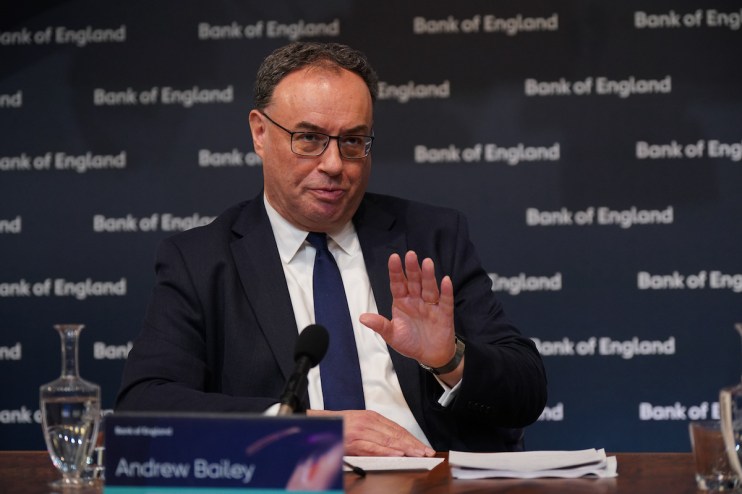Bank of England won’t hesitate to hike rates if inflation persists, warns Andrew Bailey

The Bank of England will have to keep on lifting interest rates if wages keep rising at a near record pace and businesses continue to pass on swelling costs, Governor Andrew Bailey has signalled today.
In a speech delivered at the annual Mansion House bankers’ dinner, Bailey said price pressures emanating from the labour market would require more tightening if they persist.
He said the Bank is closely watching developments in the UK economy, “in particular, those in the labour market, in wage growth and in services price inflation – to assess whether pressures are proving more persistent”.
In its statement that accompanied a shock 50 basis point increase last month, the Bank said “further tightening in monetary policy would be required” if wages and services inflation fail to chill from their current red hot levels.
Members of the nine-strong monetary policy committee (MPC) have already bumped borrowing costs up 13 times in a row to a near 15-year high of five per cent.
There is concern the Bank may over tighten and push the UK into recession due to the effects of its previous rate rises not hitting the economy clouding its judgement.
Most homeowners now have fixed-rate mortgages, largely preventing them from feeling the full impact of the MPC’s tightening cycle, a point Bailey acknowledged in his speech today.
“Over the last twenty months, we have raised Bank Rate by nearly five percentage points. Some of that tightening is still to come through the policy pipeline,” he said.
Analysts are closely watching the next batch of official data for clues on how high the Bank will lift rates.
Previous Office for National Statistics’s inflation and wage numbers overshot the City and MPC’s forecasts, forcing up the City’s peak rate expectations to more than 6.5 per cent from about five per cent a month or so ago.
Labour market figures out tomorrow morning are expected to show wage growth eased to 7.1 per cent in the three months to May, down from 7.2 per cent in the previous quarter. While lower, that number will still be among the highest recorded by the ONS since it started tracking the data in 2001.
Analysts reckon a repeat of last month’s larger rate rise is certain at the MPC’s next meeting on 3 August.